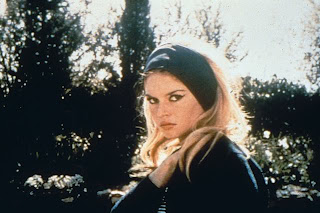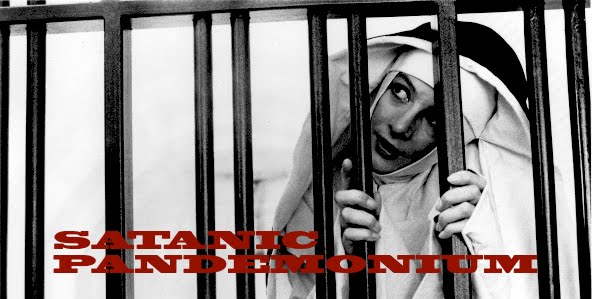 Jean-Luc Godard, 1963
Jean-Luc Godard, 1963Starring: Brigitte Bardot, Michael Piccoli, Jack Palance, Giorgia Moll, Fritz Lang
"Perhaps in each of our films you can find our hearts, our desire, everything we love and everything that gives us away." --Fritz Lang
Like Godard himself, Contempt is a divisive film. It's been called "the greatest work of art produced in post-war Europe," but I've also read/heard a lot of hatred lobbed in its direction. It was Godard's biggest studio film and is usually also considered his most accessible. Despite its streamlined plot, it's a movie with rich thematic undertones that tries to cover a lot of groundwork.
Though at its core, Contempt is about a crumbling marriage and the difficulties of love, it's also about making movies, about the appreciation of art and literature, about the contrasting values of art and commerce, and about the intersection between The Odyssey and Godard's personal life. And so on. It concerns Paul (Piccoli), a screenwriter hired to rewrite the script for a difficult new adaptation of The Odyssey, which is being directed by Fritz Lang (as himself!!) and lorded over by the ridiculous American producer, Jeremy Prokosh (Palance). Prokosh is a chauvinistic, infantile force of nature, moving through the film disrupting things as he goes. He seems to have the hots for Camille (the inimitable Bardot, though how could you not?), Paul's wife, and unknowingly stirs up the festering trouble in their relationship.
No matter how much you might love someone or think you do, there are millions of interactions and exchanges that tip the scales of a relationship. I think Contempt's true beauty and tragedy is that it holds a magnifying glass up to the minutiae of that with a stark, scary, and sad honesty. Paul and Camille love each other, or so the beginning of the film posits, but it all unravels in just one day. This illuminates the other, somewhat terrifying problem: simple communication is another powerful force that can corrode and destroy a previously healthy, strong relationship (Godard examined the cheerier side of this with A Woman is a Woman). Paul and Camille both misinterpret and misconstrue one another's actions and statements. These seemingly trivial slights snowball into infidelity, separation, and tragedy.
I love this film, but I also don't believe it's for everyone. Yes, it is snobby and intellectual and I know a few people who find it appallingly boring. Obviously those people are morons, but be forewarned that this is the French New Wave. If you've never seen one of these films before, this might not be the place to start. But if you're patient, open-minded, and you love Fritz Lang as much as I do, it's well worth checking out.
The Criterion release is obviously the only way to go. There are two discs presenting the restored film and a lot of interviews, most of them really worth watching. I particularly love the discussion between Godard and Lang, "The Dinosaur and the Baby." I could watch hours of this. It's fascinating to see such great artistic minds coming together and somewhat clashing against one another, particularly when you know their rich histories and brilliant films. Criterion claims this is out of print, but you can still find it on Amazon.

No comments:
Post a Comment